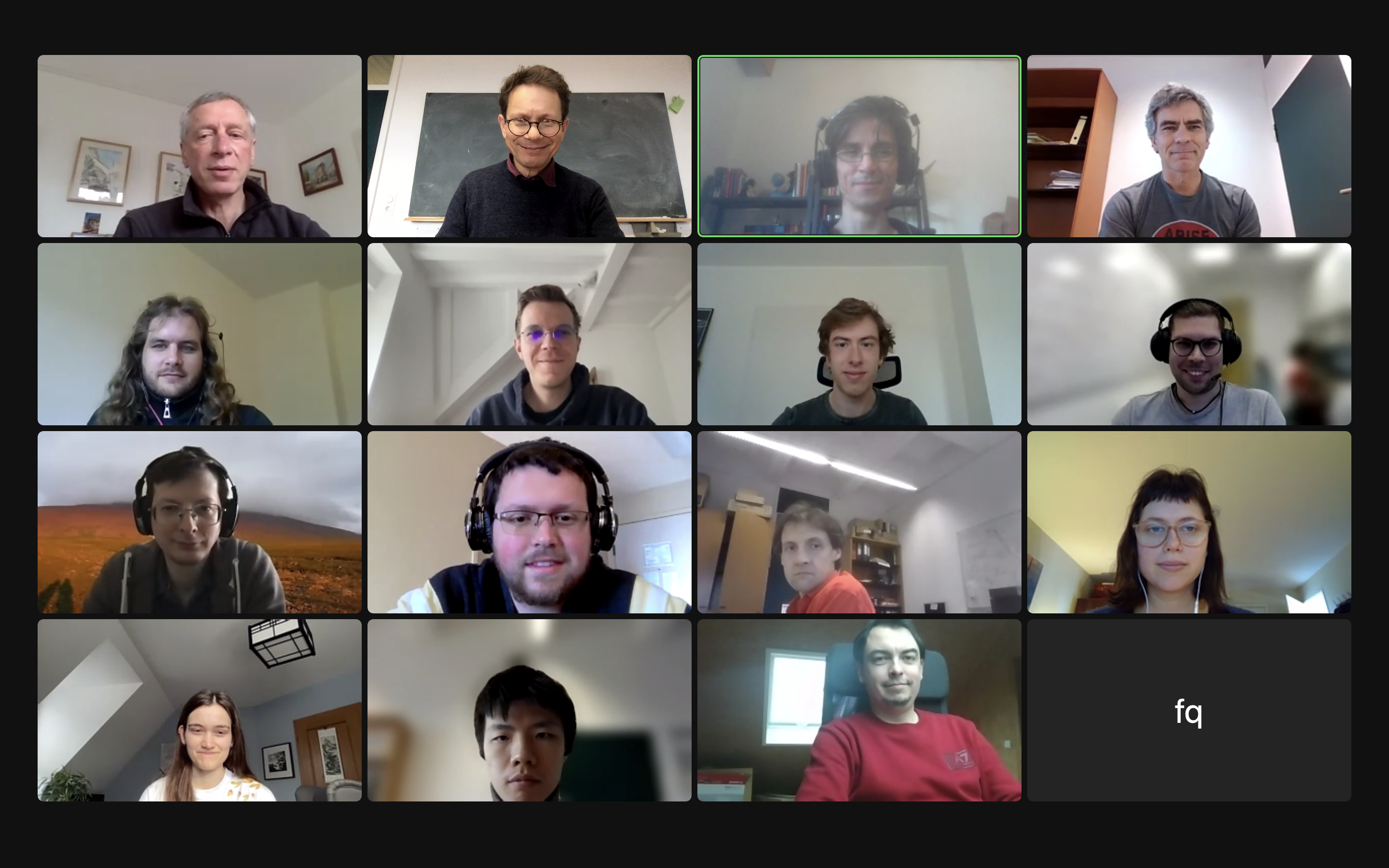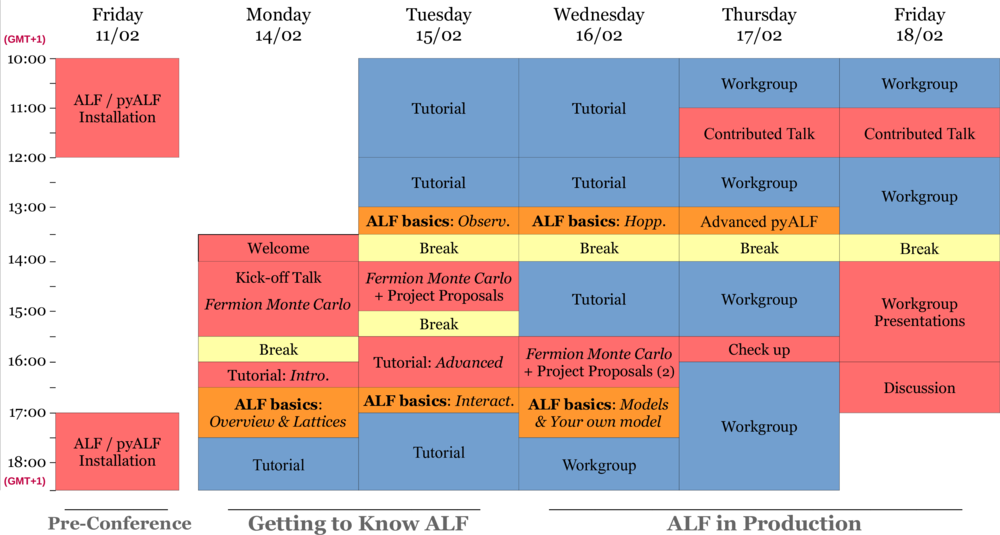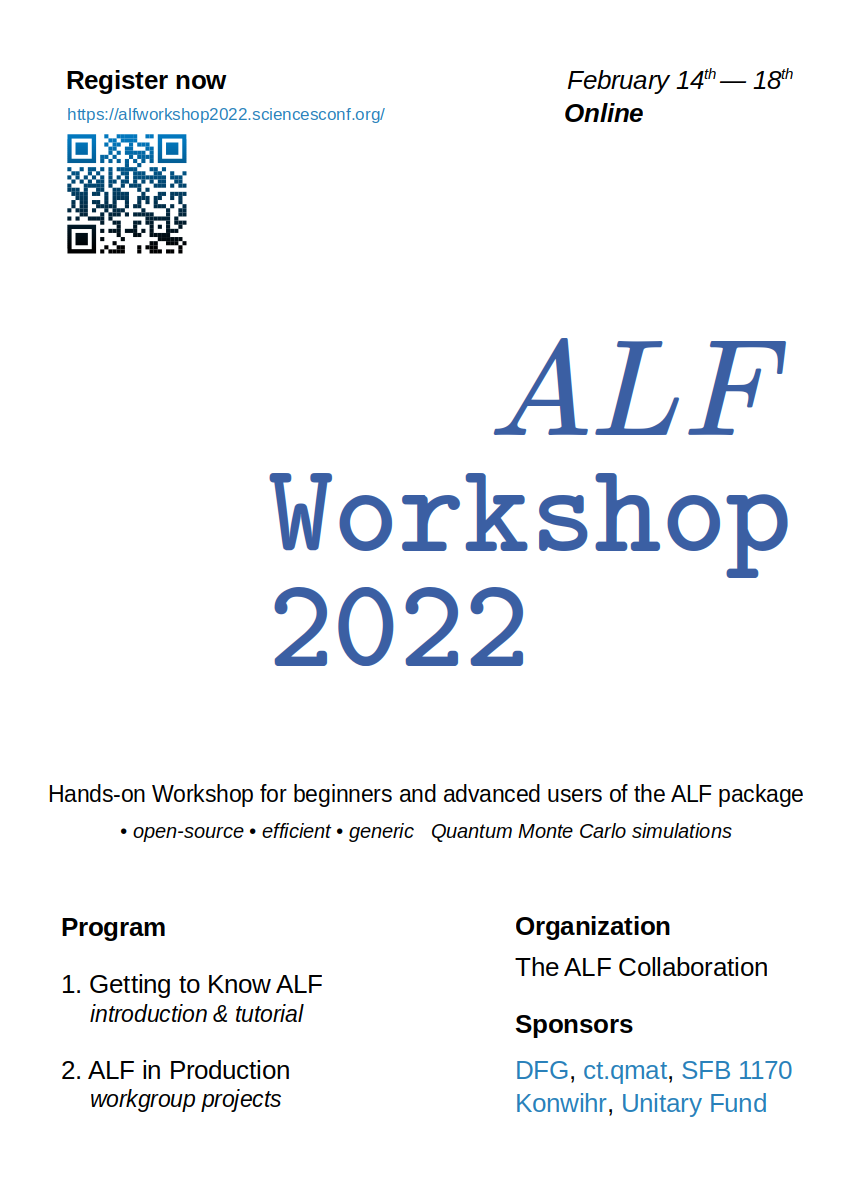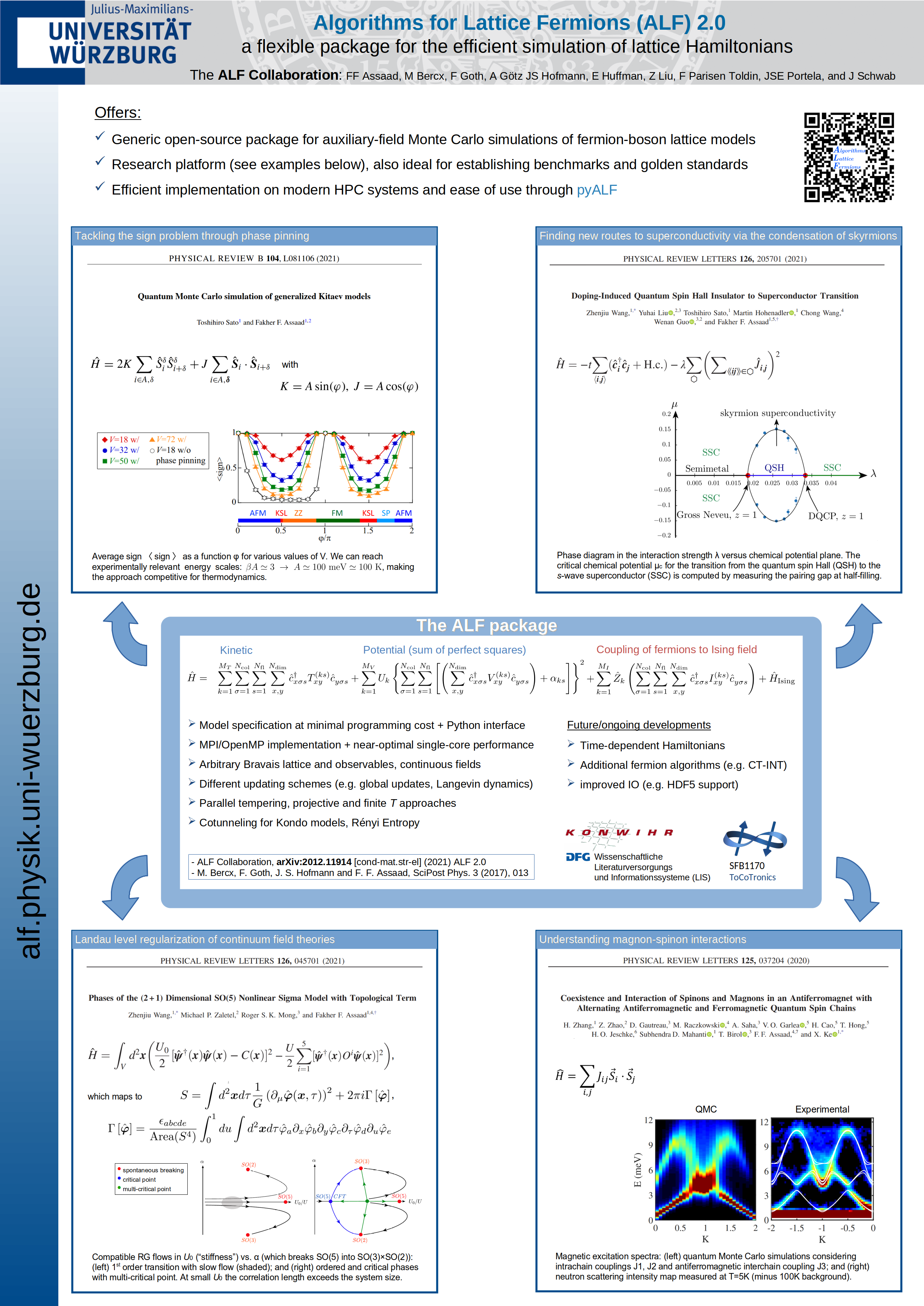
After five years and considerable development effort, ALF’s reference paper got its due update: As the very first paper in SciPost Physics Codebases!
- The ALF (Algorithms for Lattice Fermions) project release 2.0. Documentation for the auxiliary-field quantum Monte Carlo code, SciPost Phys. Codebases 1 (2022)
https://scipost.org/SciPostPhysCodeb.1.
Please cite this paper when acknowledging ALF.
Updates to our latest release, ALF 2.3, should follow soon.





